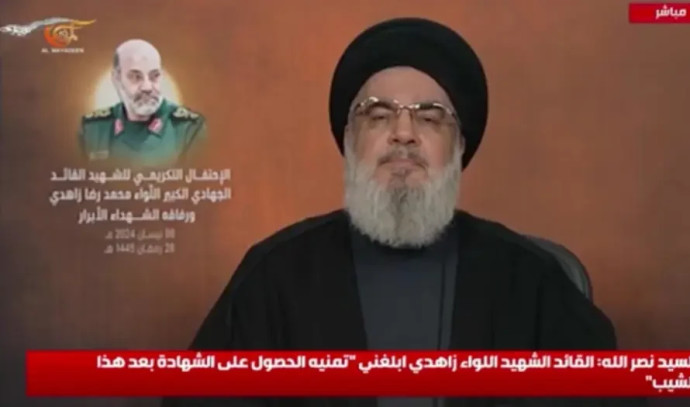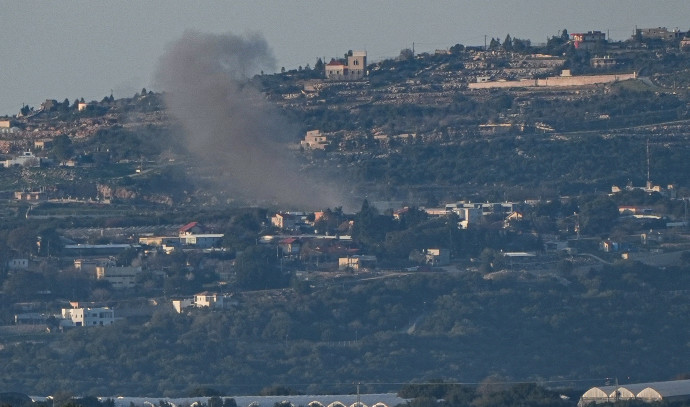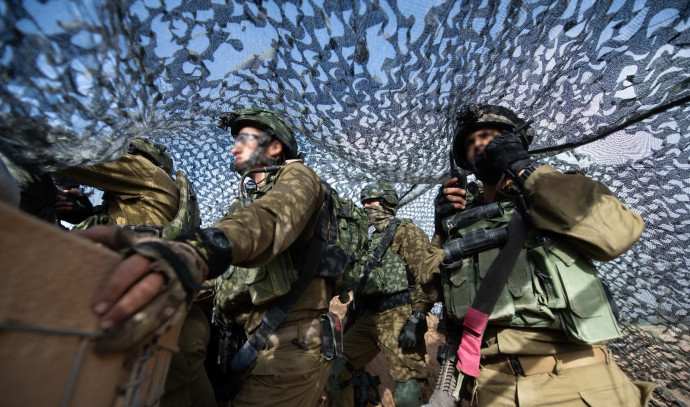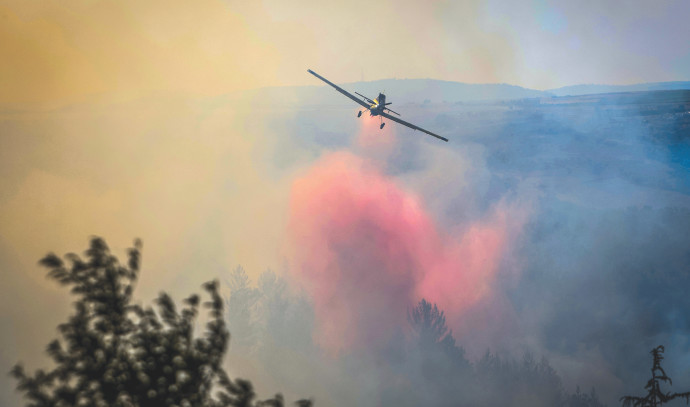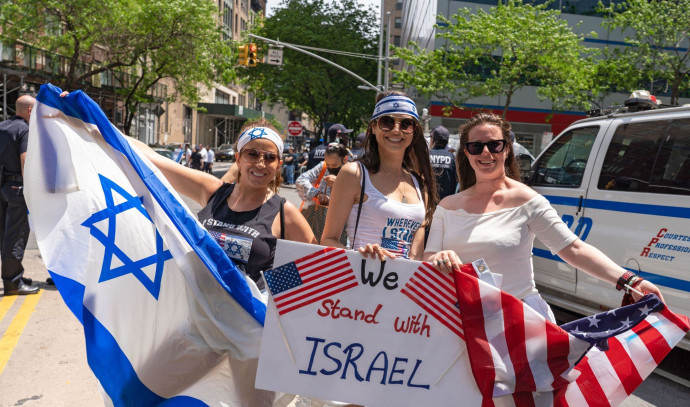world news
International Peacekeepers Day: UNIFIL’s role questioned amid Israel-Hezbollah conflict
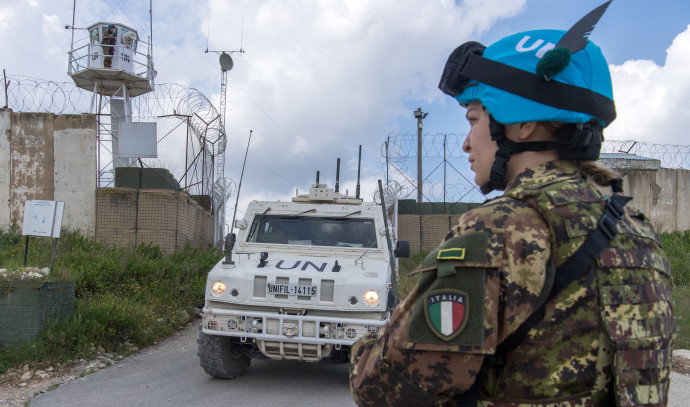
As international actors debate the legitimacy of Israel’s operation in Gaza, the war on Israel’s northern front rages on. Deaths from the Israel-Hezbollah conflict are continuing to rise, and over 100,000 Israelis are still evacuated from their homes in northern Israel, leading some to question the efficacy of the UN peacekeeper force meant to maintain security in southern Lebanon.
Israel’s 1978 invasion pushed the PLO north of the Litani River, about 18 miles from the border, in order to limit attacks against Israel. Despite the establishment of UNIFIL as a peacekeeper force, Israel returned to Lebanon in 1982. In 2006, another conflict broke out between Israel and Hezbollah, a Lebanese Shiite group with ties to Iran.
After 34 days of fighting between Hezbollah and Israel in 2006, the UN brokered a cease-fire. Under the agreement, UN Security Council Resolution 1701, Israel and Hezbollah agreed to cease hostilities, and UNIFIL was tasked with ensuring that no armed groups other than itself and the Lebanese army operated south of the Litani River.
Today, UNIFIL comprises more than 10,000 soldiers from 49 nations. In addition to monitoring the border, the organization also provides humanitarian assistance to civilians affected by the exchange of fire in southern Lebanon.
UNIFIL’s role pre-October 7
“Before Oct. 7, we were able to guarantee the overall stability of the southern border for years, and this was clearly a success,” Andrea Tenenti, spokesperson for the UNIFIL mission, told The Media Line. “We played an active role. In fact, we have helped the Lebanese army, starting from 2008, to regain control of the southern part of the country.”
Despite UNIFIL’s successes, Hezbollah has grown stronger in southern Lebanon since 2006, especially in the towns and villages along the 75-mile-long demarcation line, leading some to criticize UNIFIL as ineffective. Since Oct. 7, as constant clashes between Hezbollah and Israel have plagued southern Lebanon and northern Israel, those criticisms have grown louder.
“The UNIFIL mission started with very weak points and ended up being more a cease-fire resolution than a peacekeeping one,” Hanin Ghaddar, a senior fellow at the Washington Institute, told The Media Line. She noted that the forces mostly report violations.
“They do not possess the tools and permission from the UN to confiscate weapons or even arrest those affiliated with” Hezbollah, she said.
Tenenti characterized UNIFIL as “the only ones who can mediate properly” amid the rising tensions, noting that the group had arranged meetings between the Israeli and Lebanese armies.
UNIFIL does not only monitor the conflict between Hezbollah and Israel—at times, it finds itself caught up in that contact. Among other incidents, a car bomb killed six UNIFIL personnel in 2007, and in October, two mortar shells of undetermined origin hit a UNIFIL base, injuring one peacekeeper.
“Hezbollah targets UNIFIL because they do not want another actor in the south,” Ghaddar explained. “It is never an accident when UNIFIL personnel is targeted because the militant group aims to send a message both to the countries that serve in these forces and to the UN: do not interfere with our activities in the southern part of the country.”
Avraham Levine, a speaker at the northern Israel-based Alma Research and Education Center, told The Media Line that Hezbollah has more control over UNIFIL than UNIFIL does over Hezbollah.
“There are areas where UNIFIL personnel cannot go to, and if they end up by mistake in Hezbollah’s territory, they are attacked on the spot, their vehicles are burnt, and sometimes they are even shot down,” he said.
Levine also said that Hezbollah uses UNIFIL bases for its military purposes.
“Both in 2006 and in further operations that Israel carried against Hezbollah, the militants used UNIFIL compounds as shields for their operations in order to stop Israel’s counterattacks against a UN base,” he said.
One of the rockets launched at Israel by Hezbollah in December originated just 20 yards from a UNIFIL compound.
Levine said that the Lebanese army’s lack of action to rein in Hezbollah relates to the Shia sympathies of many of the soldiers as well as the interest in avoiding another Lebanese civil war.
Describing both UNIFIL and the Lebanese army as ineffective deterrents to Hezbollah, he said that Israel may have to invade Lebanon once again.
“We cannot risk another Oct. 7 in the northern part of Israel since [Hezbollah Secretary-General Hassan] Nasrallah publicly claimed his goal to invade the Galilee. Even if this scenario is not pleasant for both sides, we may need to stop Hezbollah by entering Lebanon as we did in the past,” he said.
In the event that a full-scale war between Israel and Hezbollah does break out, UNIFIL may be a target, Levine said. “Maybe this may push to reconsider its mission in the first place,” he speculated.
world news
Biden delays deporting Lebanese citizens from US over Hezbollah-Israel conflict

The United States is deferring the removal of certain Lebanese citizens from the country, President Joe Biden said on Friday, citing humanitarian conditions in southern Lebanon amid tensions between Israel and Hezbollah.
The deferred designation, which lasts 18 months, allows Lebanese citizens to remain in the country with the right to work, according to a memorandum Biden sent to the Department of Homeland Security.
“Humanitarian conditions in southern Lebanon have significantly deteriorated due to tensions between Hezbollah and Israel,” Biden said in the memo.
“While I remain focused on de-escalating the situation and improving humanitarian conditions, many civilians remain in danger; therefore, I am directing the deferral of removal of certain Lebanese nationals who are present in the United States.”Increased attacks since Oct.7
Israel and Hezbollah have been trading fire since Hezbollah announced a “support front” with Palestinians shortly after its ally Hamas attacked southern Israeli border communities on Oct. 7, triggering Israel’s military assault in Gaza.
The fighting in Lebanon has killed more than 100 civilians and more than 300 Hezbollah fighters, according to a Reuters tally, and led to levels of destruction in Lebanese border towns and villages not seen since the 2006 Israel-Lebanon war.
On the Israeli side, 10 Israeli civilians, a foreign agricultural worker and 20 Israeli soldiers have been killed. Tens of thousands have been evacuated from both sides of the border.
Hezbollah is an Iran-backed terrorist group and the most powerful military and political force in Lebanon.
world news
Preparing for war: Haifa mayor describes city’s infrastructure changes tensions in North escalate

Haifa mayor Yona Yahav spoke this past Monday with Lior Rosenfeld on Radio North 104.5FM about the escalation of the war in the North and his entry into political office amidst the security situation.
Yahav began, “I cannot speak on behalf of the North as I don’t know exactly what’s happening there. No one updates me, as if we are not the largest and most important city in the North. Tomorrow, the Home Front Command is coming to see us for the first time, and we will see what they have to say. We are doing everything to ensure that the city itself and our residents are safe and know what to do in case, God forbid, missiles fall on us. They are more accurate than those in 2006.”
Yahav also discussed the city’s preparations for a war in the North.
“We are now changing the entire method of building public structures,” Yahav said. “We are preparing them for prolonged stays. The minimum will be four consecutive days in shelters and such buildings, which require preparation. For example, installing toilets, which we don’t have today, and we have given instructions to build them in places close to where new houses are being built. This has been fully understood, and developers have begun to understand that the talk about evacuation and reconstruction has undergone drastic changes in light of the security situation. For example, road width needs to be maintained for the sake of evacuating residents on these roads. These are things that were not considered until now and must now be taken into account.”
Yahav’s plans for the success of Haifa’s future
Yahav then discussed his appeal to the transportation minister to stop the Highway 23 Carmel Tunnels’ toll charge.
“We called on the transportation minister to stop the discrimination. Haifa and the North are always discriminated against compared to central Israel, and there’s no reason for this. There are huge tunnels dug in Jerusalem that do not cost residents any money to pass through. There’s no reason why the tunnels dug in Haifa should include a toll. I speak on behalf of Haifa residents, and we are preparing to petition if we do not receive an answer.”
Regarding his entry into his mayoral role about three months ago, Yahav said, “I found a completely ruined city. They destroyed the municipality, and it’s very difficult to move things around. I don’t understand how residents sat idly by and kept quiet. We are trying to go to government offices to fix relations, to get funds, to move projects to bring in fees – and we are doing all this in a short time.
“The ministers are acting openly and with the goodwill to help. I am now waiting for the money on the table. The casino building in Bat Galim will be a luxurious hotel on the Bat Galim seashore. This neighborhood will undergo a complete transformation and will be the most beautiful neighborhood in the country. It will also be the only neighborhood facing a recognized beach. We came to make a change, and we will succeed.”
In conclusion, he touched on the issue of wild boars: “You won’t be able to follow them because soon you won’t see them anymore.”
world news
‘Psychological operation’: Turkey condemns FM Katz social media post depicting toddler Erdogan

Turkey’s Foreign Affairs Ministry released a statement on Sunday condemning a social media post made by Foreign Minister Israel Katz, in which Katz presented Turkish President Tayyip Erdogan as a toddler on the lap of Iran’s Ayatollah Ali Khamenei.
Katz, in a Sunday post on X, wrote “Erdogan @RTErdogan finances and arms terrorist organizations of Hamas to carry out attacks and murder against Israelis. The General Security Service captured a squad of students from Bir Zeit who were employed by the Hamas headquarters in Turkey to carry out murder attacks in Israel, through training and weapons and tens of thousands of dollars provided to them.
“Erdogan turned Turkey into a state that supports terrorism and subjects Turkey to the Iranian axis of evil in the name of extreme ideology and blatant anti-Semitism.”
Katz’s comments were made in reference to a recently thwarted terror attack planned by the student Hamas cell in Bir Zeit University, north of Ramallah. The attempted attack, the Shin Bet (Israel Security Agency) said, was directed by Hamas’s base in Turkey.ארדואן @RTErdogan מממן ומחמש ארגוני טרור של החמאס לביצוע פיגועים ורצח נגד ישראלים. שירות הביטחון הכללי לכד חוליית סטודנטים מביר זית שהופעלו ע”י מפקדת החמאס בטורקיה לביצוע פיגועי רצח בישראל, באמצעות אימונים ונשק ועשרות אלפי דולרים שסופקו להם.ארדואן הפך את טורקיה למדינה תומכת טרור… pic.twitter.com/R0SCjYdngN
— ישראל כ”ץ Israel Katz (@Israel_katz) July 21, 2024
Turkey condemns the social media post
The Turkish ministry responded “The Israeli Foreign Minister is trying to hide Israel’s crimes against the Palestinians behind a series of lies, slander and disrespect.
“Israel’s dirty propaganda targeting Türkiye and President Erdoğan, and psychological operation attempts will not bear fruit.
“The members of the Netanyahu Government, who have killed nearly forty thousand Palestinians in Gaza and are now trying to start a regional war in order to stay in power, will be tried in international courts and held accountable for their crimes.
“Türkiye will continue to speak the truth and defend the right of the Palestinian people to live in justice and peace.”
The ministry cited data provided by the Hamas-run Gaza health ministry, which does not distinguish between combatants and civilians.
Additionally, Turkey has repeatedly asserted that it does not categorize Hamas as a terrorist organization – despite its western allies acknowledging it as such and its proven attacks on Israeli civilians.
-

 Solar Energy3 years ago
Solar Energy3 years agoDLR testing the use of molten salt in a solar power plant in Portugal
-

 Camera3 years ago
Camera3 years agoCharles ‘Chuck’ Geschke, co-founder of Adobe and inventor of the PDF, dies at 81
-
world news8 months ago
Gulf, France aid Gaza, Russia evacuates citizens
-
world news3 months ago
Jewish diaspora expresses concern as Iranian drones launch toward Israel
-

 Camera3 years ago
Camera3 years ago80,000MP panoramas: EarthCam announces world’s highest-resolution robotic webcam
-

 TOP SCEINCE3 months ago
TOP SCEINCE3 months agoCan animals count?
-

 Solar Energy8 months ago
Solar Energy8 months agoGlencore eyes options on battery recycling project
-

 Camera8 months ago
Camera8 months agoDJI Air 3 vs. Mini 4 Pro: which compact drone is best?



